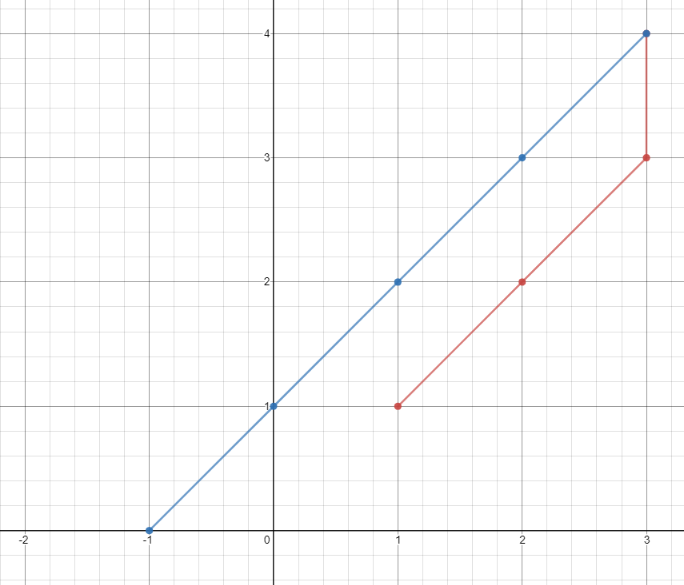Problem
On a 2D plane, there are n points with integer coordinates points[i] = [xi, yi]. Return **the *minimum time* in seconds to visit all the points in the order given by **points.
You can move according to these rules:
In `1` second, you can either:
move vertically by one unit,
move horizontally by one unit, or
move diagonally
sqrt(2)units (in other words, move one unit vertically then one unit horizontally in1second).You have to visit the points in the same order as they appear in the array.
You are allowed to pass through points that appear later in the order, but these do not count as visits.
Example 1:
Input: points = [[1,1],[3,4],[-1,0]]
Output: 7
Explanation: One optimal path is [1,1] -> [2,2] -> [3,3] -> [3,4] -> [2,3] -> [1,2] -> [0,1] -> [-1,0]
Time from [1,1] to [3,4] = 3 seconds
Time from [3,4] to [-1,0] = 4 seconds
Total time = 7 seconds
Example 2:
Input: points = [[3,2],[-2,2]]
Output: 5
Constraints:
points.length == n1 <= n <= 100points[i].length == 2-1000 <= points[i][0], points[i][1] <= 1000
Solution
/**
* @param {number[][]} points
* @return {number}
*/
var minTimeToVisitAllPoints = function(points) {
return points.reduce((sum, point, index) => {
if (index === 0) return 0;
var diffX = Math.abs(point[0] - points[index - 1][0]);
var diffY = Math.abs(point[1] - points[index - 1][1]);
var second = Math.max(diffX, diffY);
return sum + second;
}, 0);
};
Explain:
nope.
Complexity:
- Time complexity : O(n).
- Space complexity : O(1).
